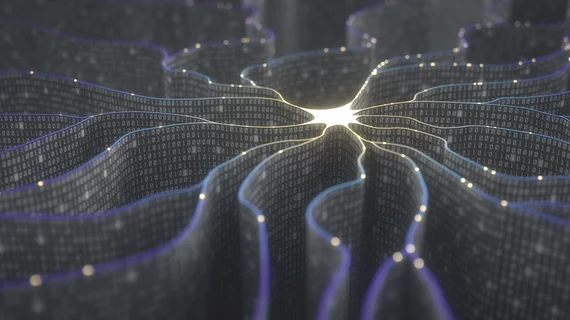King’s College London, NVIDIA launch federated learning system for neural networks
King’s College London and Santa Clara, California-based NVIDIA are teaming up to create a new federated learning system to advance medical imaging research.
Federated learning allows multiple collaborators to develop and train neural networks using a decentralized platform. The technique eliminates the need to directly distribute patient data across institutions and is considered much more secure.
“Each node trains its own local model and, periodically, submits it to a parameter server,” Jorge Cardoso, associate professor in AI at King’s College, and colleagues explained in a NVIDIA statement. “The server accumulates and aggregates the individual contributions to yield a global model, which is then shared with all nodes.”
The team tested their technique on a dataset of 285 brain tumor MRI scans, called the BraTS 2018 dataset. Compared to a data-centralized system, the federated learning method yielded similar segmentation parameters without the need to share an institution’s individual data.
Researchers from NVIDIA said their findings are an “important step toward the deployment of secure federated learning,” and may ultimately lead to the expansion of data-driven precision medicine.
Team members who worked on the project will present their paper at MICCAI 2019 in Shenzhen, China, which started on Monday, Oct. 14.

